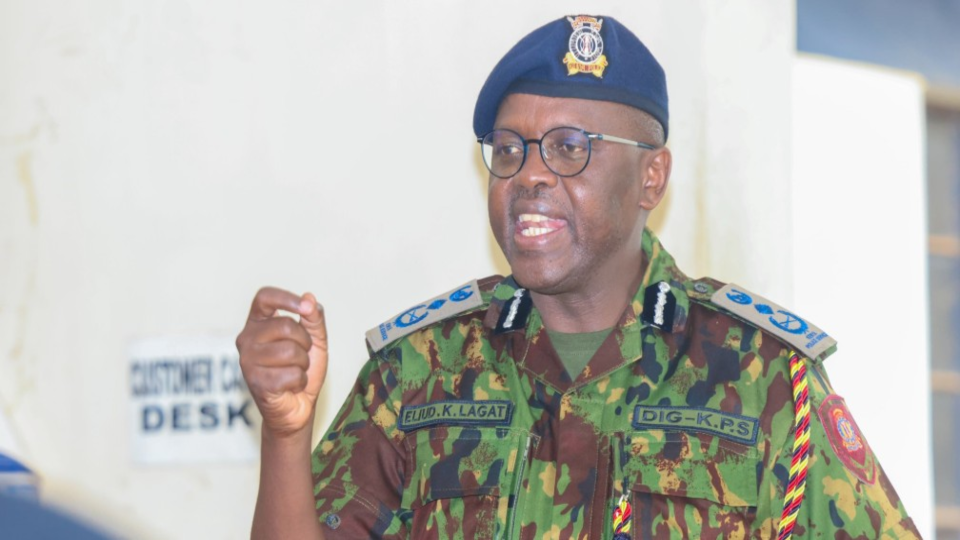Deputy Inspector General of Police Eliud Lagat Denies Involvement in Albert Ojwang’s Death
Deputy Inspector General of Police Eliud Lagat has firmly denied any involvement in the abduction, torture, and death of Albert Ojwang, a teacher and blogger who died in police custody in June 2025. In court filings submitted on Monday, Lagat described the allegations against him as "grave and defamatory" and lacking any credible evidence, urging the court to dismiss the case brought by human rights activists.
Lagat, a senior officer in the Kenya Police Service, stated that he fully cooperated with investigative bodies, including the Independent Policing Oversight Authority (IPOA), the Directorate of Criminal Investigations (DCI), and the Office of the Director of Public Prosecutions (ODPP), following Ojwang’s death. He emphasized that IPOA, a constitutional body responsible for overseeing police conduct, conducted thorough investigations and found no evidence linking him to the incident. The ODPP, after reviewing the inquiry, decided to charge other individuals deemed culpable, but not Lagat, due to the absence of incriminating evidence.
"I voluntarily stepped aside from my official duties to allow for unfettered investigations, a gesture reflecting my commitment to accountability and the rule of law," Lagat stated in the court documents. He argued that his continued service does not violate any constitutional provisions and that no investigative authority has recommended his interdiction or prosecution. Lagat further contended that the petitioners’ demand to compel the DPP to charge him undermines prosecutorial independence and the doctrine of separation of powers, describing it as a "dangerous precedent" and an abuse of the court process.
The petitioners, led by lawyer Lempaa Suyinka and former university don turned activist Prof. Fredrick Ongola, have accused Lagat of being complicit in Ojwang’s death and are seeking to halt the prosecution of three police officers and three civilians charged with the murder until Lagat is also listed for prosecution. They argue that excluding Lagat from prosecution is discriminatory and shields a key figure in what they describe as a syndicate involving the DPP, IPOA, the National Police Service, and even President William Ruto. The activists have called for the High Court to intervene, alleging an ongoing miscarriage of justice.
Lagat countered these claims, asserting that the allegations are speculative and unsubstantiated. He noted that he was not present at the scene of the incident, did not issue any unlawful instructions, and his role as Deputy Inspector General was purely administrative and command-based, with no involvement in operational conduct related to Ojwang’s arrest or detention. "The blanket allegation that I am a prime suspect is defamatory and unsupported by any documentation or investigative finding," he stated, urging the court to dismiss the claims for lack of prima facie or cogent evidence.
Ojwang, a 31-year-old teacher and influencer from Homa Bay County, was arrested on June 7, 2025, following a complaint by Lagat over defamatory social media posts. The posts, shared on Ojwang’s X account with approximately 13,400 followers, accused Lagat of corruption within the National Police Service, including claims of strategically placing loyal officers in key positions to control revenue and intelligence streams. One post alleged that Lagat had purchased a $2.6 million property in Dubai, a claim the Ethics and Anti-Corruption Commission (EACC) later clarified was not under investigation.
Ojwang was apprehended at his home in Kakoth Village, Kasipul Kabondo Constituency, and transported to Nairobi’s Central Police Station. He was booked into custody at 9:35 p.m. on June 7 under OB number 136/7/6/2025. Less than 24 hours later, in the early hours of June 8, officers found him unconscious during a routine cell check. He was rushed to Mbagathi Hospital, where he was pronounced dead at 1:31 a.m. An autopsy conducted by five pathologists revealed that Ojwang died from head injuries, neck compression, and multiple soft tissue injuries, ruling out the initial police claim of suicide by self-inflicted head trauma.
The case has sparked widespread outrage, with human rights groups, political leaders, and the public demanding accountability. The Kenya Youth Association (KYA) labeled Ojwang’s death a "state-sanctioned murder," accusing the police of reverting to a pattern of extrajudicial killings. Former Deputy President Rigathi Gachagua called for Lagat’s immediate suspension, alleging that the officer personally oversaw operations at Central and Kamukunji police stations, which he described as "torture chambers." Senators, including Siaya’s Oburu Odinga and Kakamega’s Boni Khalwale, have demanded Lagat’s arrest, citing the autopsy findings and questioning the integrity of police stations as safe spaces.
On June 16, 2025, Lagat announced he was stepping aside from his role to allow for an impartial investigation, though he later clarified in court filings that he had taken an 18-day leave and had not appointed a successor, denying claims of formally stepping down. The High Court, on July 14, declined to issue interim orders blocking Lagat from returning to office, with Justice Chacha Mwita ruling that he deserved a fair hearing. The court directed Lagat to respond to the activists’ petition by July 23, 2025, and the case remains pending.
IPOA has emphasized that its investigation into Ojwang’s death is ongoing, dismissing earlier reports that Lagat had been cleared. Chairperson Ahmed Issack Hassan stated that no one has been exonerated and that the authority would recommend action if evidence implicates Lagat. The probe has already led to the arraignment of four police officers and two civilians, with preliminary findings indicating that CCTV footage at Central Police Station was tampered with.
Public protests have intensified, with youth demonstrations in Nairobi’s Central Business District on June 12 disrupting operations as citizens demanded Lagat’s resignation. The case has reignited debates about police brutality, extrajudicial killings, and the need for systemic reforms within the National Police Service. As the investigation continues, Kenyans await the post-mortem results and further court rulings to determine whether justice will be served for Albert Ojwang.


